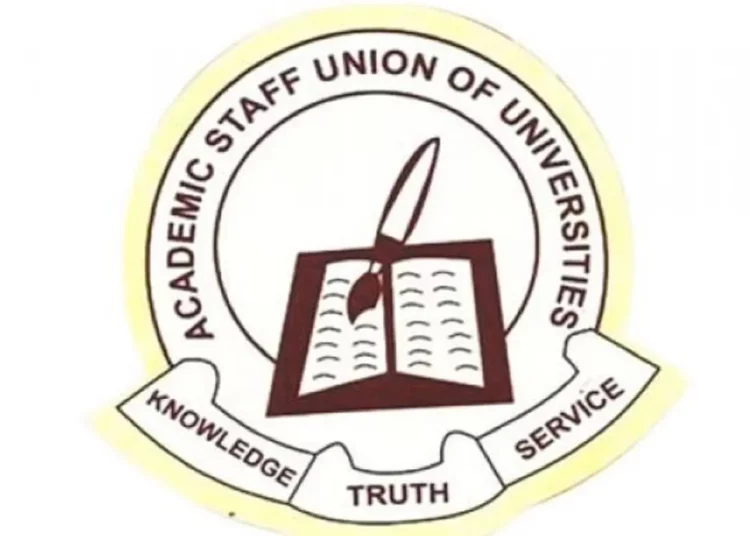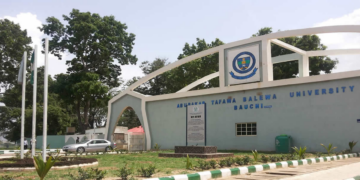Nigeria’s ivory towers are again on the verge of experiencing another industrial action as the Academic Staff Union of Universities (ASUU) inches closer to the expiration of its 14-day ultimatum to the federal government to meet its demands.
The ultimatum, which expires on Sunday, 12th October, 2025, has triggered intense mobilisation in university campuses, with the lecturers warning that failure to meet their demands could plunge the nation’s universities into another prolonged shutdown.
Although the authorities have reconstituted and inaugurated the Mahmud Yayale Ahmed Federal Government Tertiary Institutions Expanded Negotiation Committee to accelerate ongoing discussions with academic and non-academic unions, the fear of ASUU embarking on a warning strike still festers.
Despite the renewed dialogue, uncertainty persists over whether the union will proceed with industrial action once the ultimatum expires.
The clock is ticking and unless a breakthrough is achieved before Sunday, Nigeria’s public universities may again fall silent, marking the first major labour dispute under President Bola Ahmed Tinubu’s administration.
At the heart of ASUU’s agitation lies a set of unresolved issues dating back to over a decade. The union insists that successive governments have failed to honour the 2009 ASUU-Federal Government Agreement, which covers university funding, salary structure, earned allowances, and improved conditions of service for academic staff.
The lecturers argued that the refusal to implement the renegotiated terms, coupled with years of unpaid arrears, stagnated promotions and poor funding, has left the university system to decay.
ASUU also listed other grievances as non-payment of three and a half months’ salary arrears, one-year arrears of the 25 and 35 per cent wage awards, and the non-remittance of third-party deductions meant for cooperatives and unions.
The union said the situation had dampened morale among lecturers and fuelling the mass exodus of skilled academics abroad.
Signs of the looming confrontation began to emerge in late July 2025 when the minister of Education, Dr Tunji Alausa, assured Nigerians that President Bola Tinubu had directed that “never again” should ASUU or any tertiary union embark on strike.
Alausa pledged that regular engagement and trust-building would form the core of the administration’s strategy.
However, by August 21, that optimism had faded. At a press conference in Jos, ASUU president, Dr Christopher Piwuna, accused the government of failing to act on its promises, saying the lecturers had endured “two years of broken commitments.”
He warned that unless urgent action was taken, the union might have “no other option than to compel the government to listen.”
On August 26, nationwide protests erupted on campuses in Abuja, Lagos, Akure, Jos and other university towns. The lecturers marched through university gates with placards demanding the payment of withheld salaries, revitalisation funds and implementation of the 2009 agreement.
The union described the protests as a “final warning” before the looming industrial action.
The chairman of ASUU at Yakubu Gowon University, Abuja, Dr. Sylvanus Ugoh, lamented that lecturers had remained on the same salary structure since 2009 despite worsening economic conditions. “We worked for our salaries. Pay us our arrears, implement the renegotiation report and release our promotion arrears,” he said.
At the same time, ASUU’s Akure zonal coordinator, Prof. Adeola Egbedokun, declared that the lecturers’ patience was waning. “We will fight back, and the consequences will be damning except the government acts decisively,” he warned.
In what appeared to be a response to the growing discontent, the minister of education announced on August 28 that a seven-member technical team had been constituted to fine-tune the government’s counter-proposal to ASUU’s demands.
The team, chaired by the ministry’s permanent secretary, has top officials from the lustice and labour ministries, the National Salaries, Income and Wages Commission, the National Universities Commission (NUC), TETFund and the Budget Office.
Alausa emphasised that the government would not sign any “bogus agreements” it could not implement. “We want this to be constitutional and sustainable. Every clause must be actionable and within the government’s capacity to fund,” he said.
He added that previous ASUU agreements were never formally binding and vowed that the Tinubu’s administration would ensure transparency and accountability in its negotiations.
But weeks after the announcement, there has been no serious progress made, and no outcome from the committee has been announced. ASUU leaders have expressed frustration over the government’s silence, accusing it of buying time while lecturers face economic hardship.
With three days left before the ultimatum expires, ASUU branches nationwide have reportedly intensified mobilisation for a possible strike.
The union’s national leadership has also directed chapters to be on standby for further directives after its National Executive Council (NEC) meeting expected this weekend.
Insiders said the tone of that meeting will likely determine whether academic activities continue or grind to a halt. Many lecturers believe that the government’s failure to act decisively before the deadline could signal another drawn-out industrial crisis in the nation’s university system.
Meanwhile, public concern is mounting over the potential disruption to the academic calendar, especially as universities are only beginning to stabilise after previous strikes.
Stakeholders, including parents and students, have urged both sides to return to the negotiation table and avert what they describe as a needless cycle of crisis.
Ronke Adeyemi, a parent from Abuja, said both ASUU and the government should find a lasting solution since it is the students who suffer every time.
“We are tired of this cycle of strikes. Our children spend more years in school than necessary, affecting their morale.
“Parents are paying rent, feeding allowances, and other expenses even when schools are closed. This is becoming unbearable,” she said.
A 300-level student at the University of Abuja, Victor Aondo, lamented that each time ASUU goes on strike, the dreams of students are delayed.
“We just want to graduate and move on with life. We understand ASUU’s struggle, but there has to be another way. The government should prioritise education once and for all.
“We are always the victims of poor negotiation. It’s like our future is being played with,” he said.





